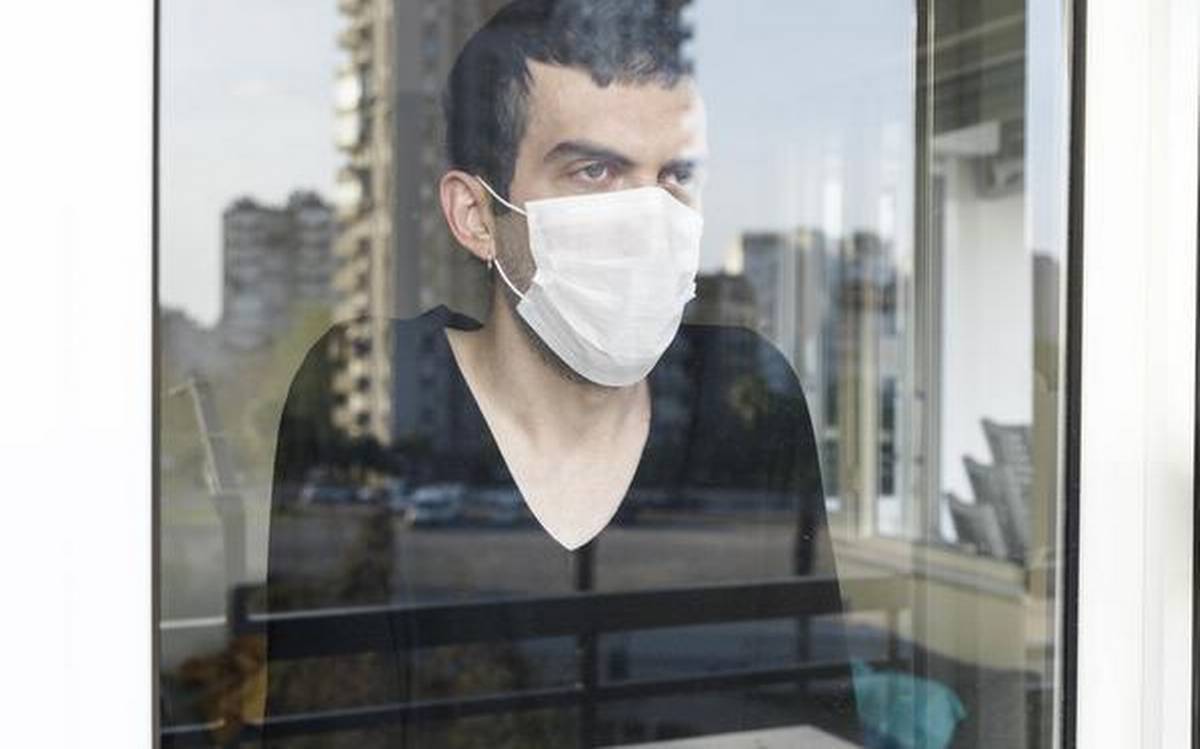What A Second Coronavirus Lockdown Could Do To Mental Health
Americans are finally starting to get outside again, and it’s a huge mental release after being under stay-at-home orders for many weeks. But public health officials are here with a warning: We could go under lockdown again, and it could be terrible for mental health.
Dr. Elinore McCance-Katz, the assistant secretary for mental health and substance abuse, said in a Cabinet meeting on Tuesday that there could be an increase in the number of suicides, fatal drug overdoses and instances of domestic abuse, in addition to more general mental health stressors, if the United States goes through a second COVID-19 lockdown.
“I would very much hope that we would not do this again. I don’t see the science to back it up,” she said of a shutdown, according to the Wall Street Journal. “We need to discuss the risks versus the benefits of taking action, and I would say we wouldn’t want to take the same approach.”
It’s important to point out that China has just imposed another Wuhan-style lockdown in the country’s northeastern region after the area saw a resurgence of COVID-19 cases. A second lockdown can definitely happen in the U.S. too, Dr. Richard Watkins, an infectious disease physician and professor of internal medicine at the Northeast Ohio Medical University, tells Yahoo Life. “It will depend on if we see a spike in infections after the reopenings,” he says. But there’s a chance that things won’t get to a full-on lockdown again. “I think what we’ll see is much more precision-guided social distancing recommendations and not another type of shutdown if cases get out of hand in any part of the country,” Dr. Amesh A. Adalja, senior scholar at the Johns Hopkins Center for Health Security, tells Yahoo Life.
Either way, life could change — again. That raises a huge question: What does this mean for mental health?
“A second lockdown will be taken as very defeating for the public. The feeling will prevail that the virus will win, and it will stimulate hopelessness and great despair,” John Mayer, PhD, author of Family Fit: Find Your Balance in Life, tells Yahoo Life.
“People are already struggling with isolation and quarantine fatigue. They’re feeling overwhelmed,” Thea Gallagher, PsyD, clinic director at the Center for the Treatment and Study of Anxiety at the University of Pennsylvania’s Perelman School of Medicine, tells Yahoo Life. “It will be hard to adapt back to ‘normal’ life and then have to go back to lockdown.”
Change is difficult for most people, Gallagher says, and it’s concerning that there’s so much change in such a small period of time. “Hopefully, we will adapt slowly to real life so that if we have to go back to lockdown, it won’t feel as jarring,” she says. But doing a second lockdown “can make people feel like it’s endless,” she says, adding, “the uncertainty of it all is going to be more difficult a second time.” That can even trigger mental health conditions like depression and anxiety, she says.
People may even have physical symptoms. Weight gain and lethargy are common in times like this, Gallagher says.
While it can feel overwhelming to even think about the idea of a second lockdown, it doesn’t need to. “I keep telling patients, ‘We are much better at handling these things than we think,’” Gallagher says. “Keep telling yourself that ‘I’ve done this once, I can do it again.’”
The fact that we all have been through lockdown before can actually work in our favor, Gallagher says. “The skills we’ve developed to adapt to this will help us adapt to lockdown life again,” she says.
Gallagher encourages people to “hold loosely” to things that are happening now and accept that there will be a lot of uncertainty in the coming weeks, months and even years. “It’s so easy to get ahead of ourselves and wonder, ‘When can I go to this event?’ or ‘When can I go on vacation?’” she says. “Instead, enjoy the nice weather on days when you have it, and look at the aspects of quarantine you can enjoy.”
Gallagher recommends that everyone mentally prepare for another lockdown but warns against obsessing over it. “It’s not necessarily going to happen. Leaning into the uncertainty is important,” she says.
And if you find that you’re struggling mentally, reach out to a mental health professional. “Now is a great time to find a therapist — virtually,” Gallagher says.
Get general information on mental health and locate treatment services in your area. Contact Substance Abuse and Mental Health Services Administration Treatment Referral Helpline at 1-877-SAMHSA7 (1-877-726-4727). Speak to a live person, Monday through Friday from 8 a.m. to 8 p.m. ET.








Recent Comments